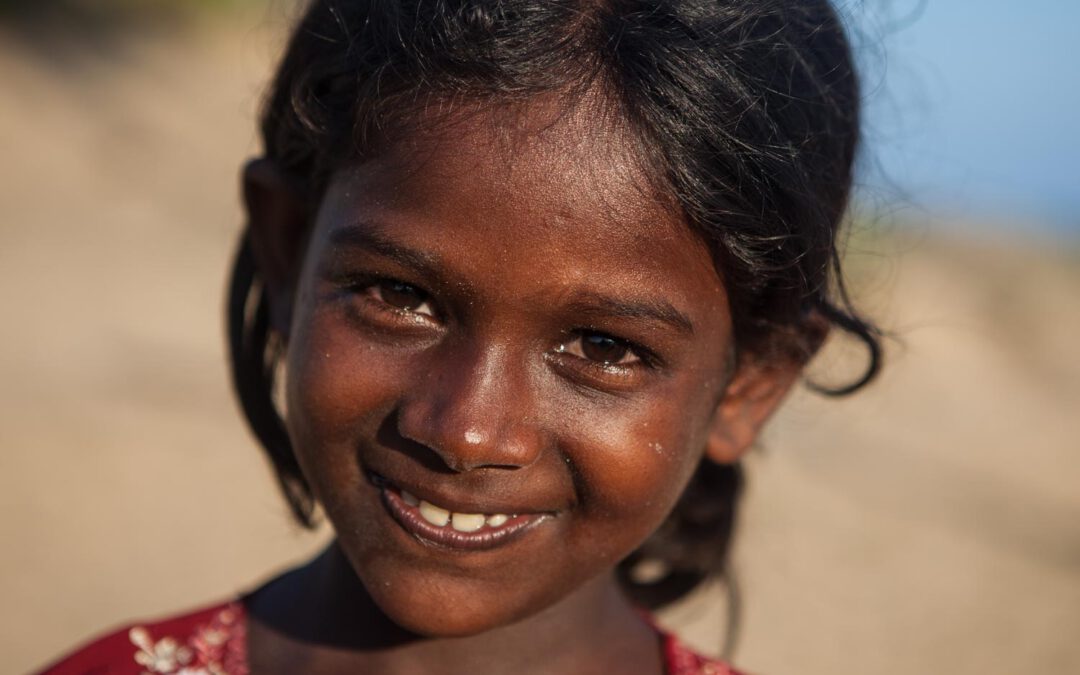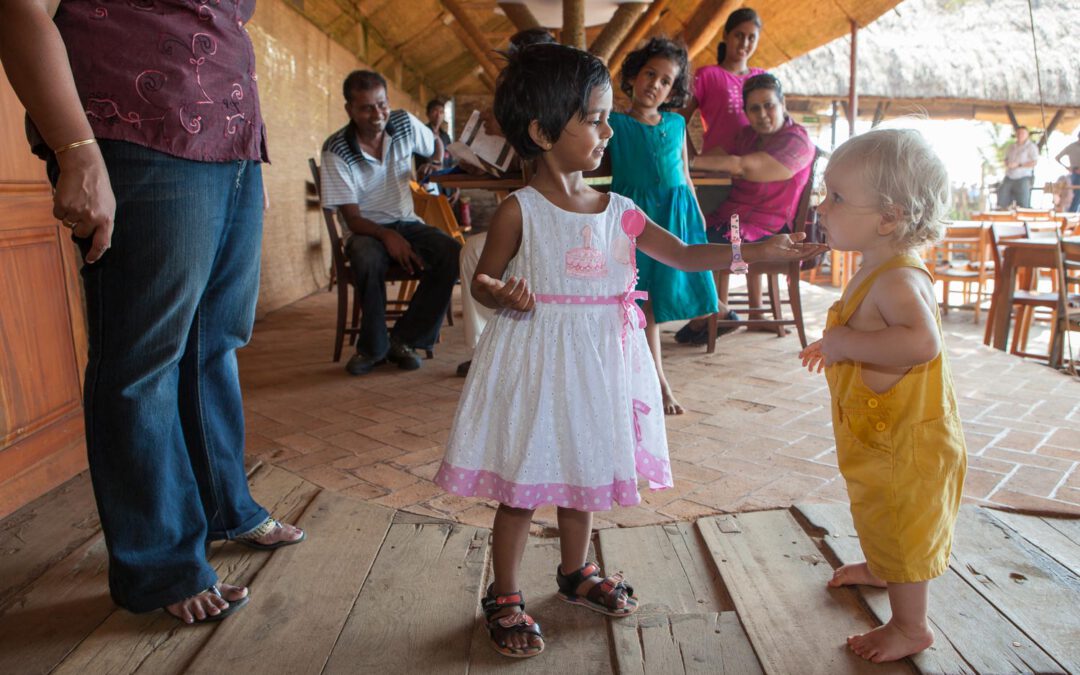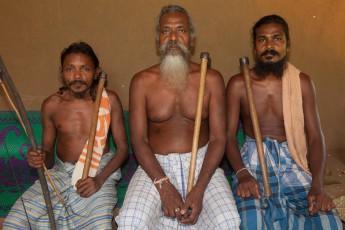
On arrival in Dambana, the Vedda Chief welcomes us personally. On the right of the picture is his son, the future chief. The succession is passed on from father to son, as in royal houses. We talk for a long time with the tribal chief and he answers all our questions patiently and in detail. Over their shoulder, the Veddas carry their axe, which is used as a daily tool and for hunting.
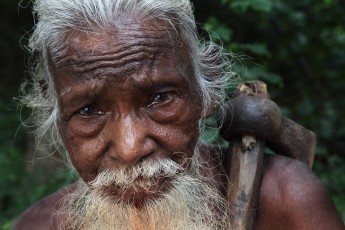
The Vedda Yota Bandiya says he is 95 years old and thus the oldest member of the tribe.
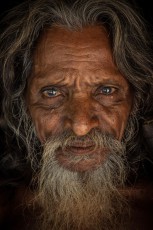
Portrait of 75-year-old Kiri Bandiya.
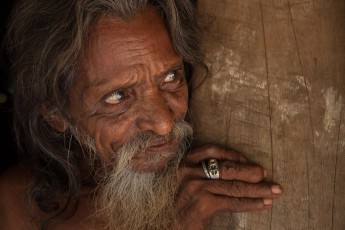
Vedda Kiri Bandiya, 75 years of age, in the entrance of his house.
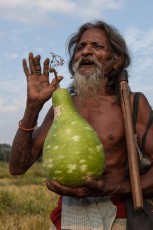
Kiri Bandiya, with whom I spend a day, philosophises about the calabash gourd in his hands. The fruit is hollowed out and dried to eventually transport liquids or honey with it.
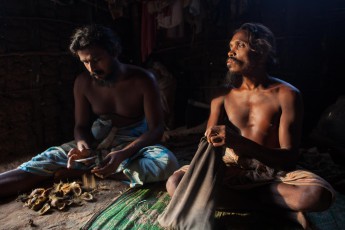
Perseverative activity for the Vedda people. From the early morning until the late night: Cracking and chewing betel nuts.
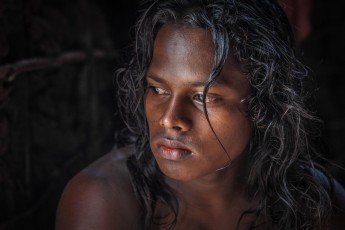
Kadira (19 years), in the hut of Veddas Guna Bandiya.
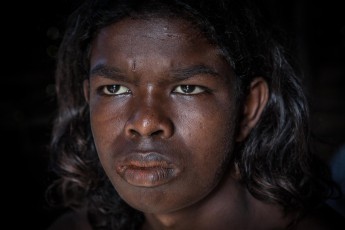
The Vedda Tupiya (16 years).
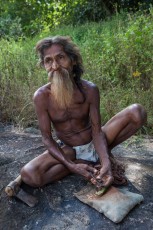
Uruwarige Bandiya does not know his exact age. ”What I know is, that the sun rises and sets again every day. For me, that is sufficient.”
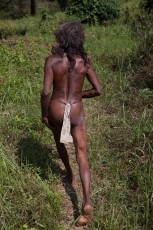
Uruwarige Bandiya on the foray through the Vedda area.
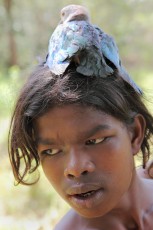
Tupiya has picked up a plain-breasted dove with a wing down.
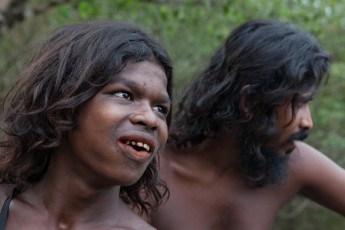
The Vedda people are genetically related with the Aborigines. It is possible to read it in Tupiya’s face (left).
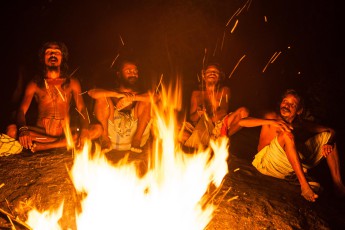
The men exchange their adventures of the day and their remembrances at the vespertine campfire.
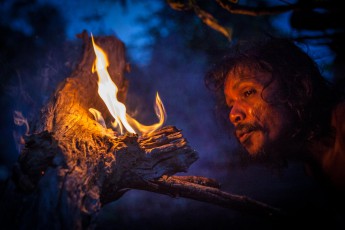
The Veddas are very skillful firemakers. In the early morning Vijaiatho sets a crotch on fire.
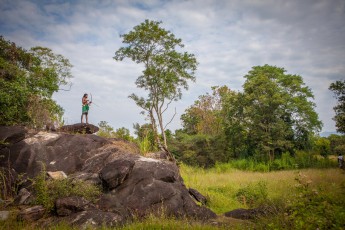
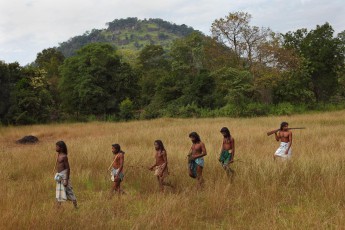
The hunt for game is protected by a man with a gun for the protection against elephants and bears.
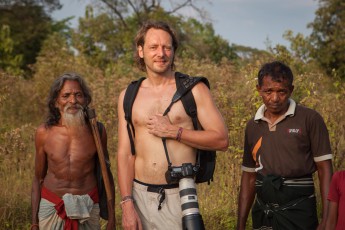
On the road with Kiri Bandiya and companion in the Vedda area.
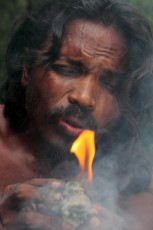
Guna Bandiya ignites fire with a fire stone and a ball of cloth.
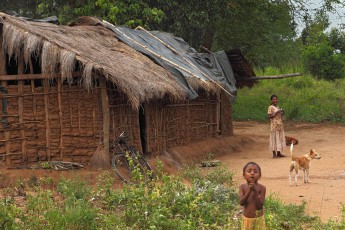
Wife, child, house, dogs and mud hut of Guna Bandiya, where i am living during my stay. A plastic tarpaulin has to serve temporarily as replacement for the dry grass, which is growing rarely in the Vedda people area.
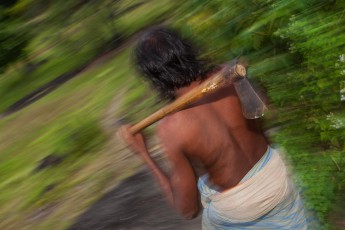
The axe – the indispensable tool for the men –is carried always and on all ways.
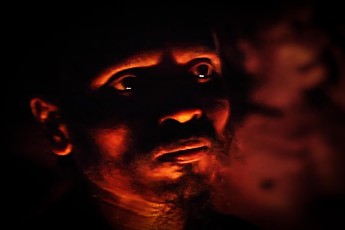
The genetic relationship with the Aborigines is also visible in the evening at the campfire.
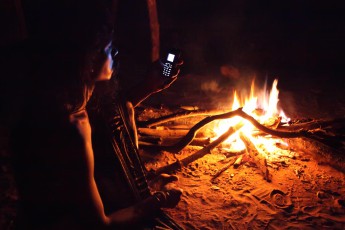
A Vedda takes out his mobile phone in the protection of the night to play with it. He feels a bit sheepish, as it means a break with tradition for him and he is frightened being objurgated by the elder. After a few moments his treasure disappears again in the pleats of his sarong.
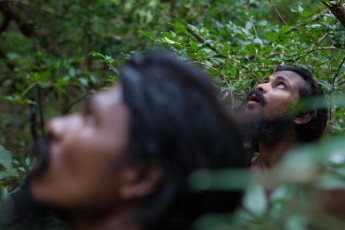
Every movement of the friends - high up in the tree - is observed.
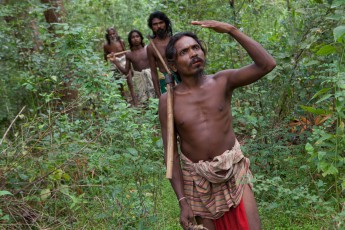
In search of honey bees, which should tell the Vedda people the way to the nest.
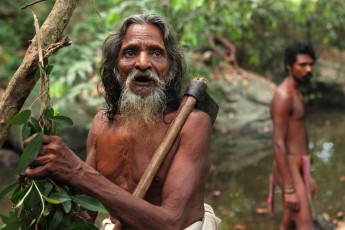
Kiri Bandiya calls on the spirits of the forefathers and the gods of the forest for protection and safety before climbing on the tree with the beehive.
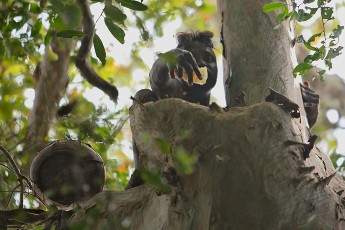
The Veddas are excellent honey hunters. On this day, however, it took almost three hours before they spotted this hive about 20 metres up the tree.
Without any aids, three Veddas climb the tree, only Guna Bandiya picks the honeycombs out of the tree cavity with great physical effort.
He is stung several times, but the Veddas do not know gloves, masks or similar means of protection. The Veddas do not know any means of protection.
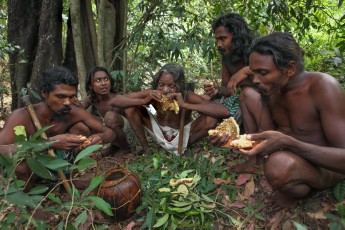
The yield of the honey hunt is divided amongst the hunting companions and right away eaten with pleasure.
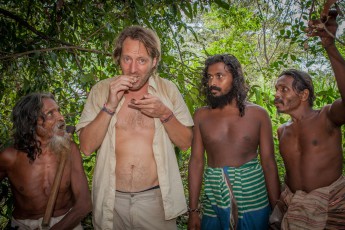
Me, devouring a wild honeycomb gathered before in dizzying height by Guna Bandiya (right). I have to admit, it wasn't easy for me to bite into this "larvae home", but the taste was overwhelming: Sweet, fine, aromatic - one couldn't wish for a more natural honey. The taste crawled deeply in my jaw-bones.
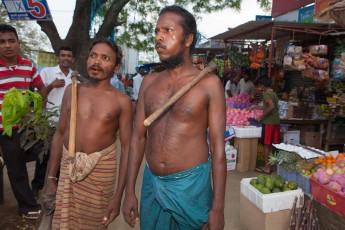
Guna Bandiya and his neighbor during one of the rare visits to the nearest town Mahiyangana. For many of their Sri Lankan fellow countrymen the Vedda people are an exception.
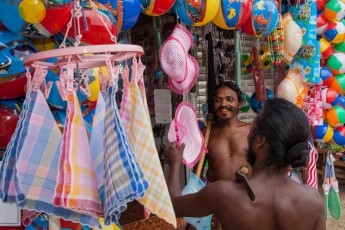
GunaBandiya and his neighbor sneer at the displayed goods of a shop.

